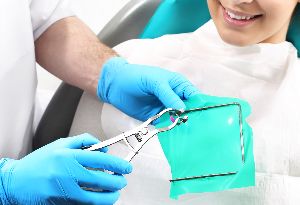
When your dentist mentions a new procedure, a million questions and concerns might start circulating through your head. Hearing you need a root canal can certainly be anxiety-inducing, especially if you've never had one. While the dentist will outline all the details you need to know, having as much knowledge as possible ahead of the procedure can help ease your mind. Here's a list of answers to frequently asked questions about root canals.
A Quick Guide to Root Canals
What are some of the signs I need a root canal?
Tooth decay and gum disease are two of the most common precursors to a root canal. However, with proper care and treatment of both, this procedure can be avoided. If you're unsure of whether or not tooth decay or gingivitis is present, check for swelling, pain, or discoloration in the gums. You may also notice sensitivity in the gums or teeth, usually to hot or cold temperatures, and intense discomfort when chewing, biting, or performing other movements.
What does a root canal involve?

The first step of a root canal is the application of a local anesthetic, which will block any pain during the procedure. A small hole will be drilled into the tooth to reveal the pulp, which is the bundle of nerves, tissue, and blood vessels inside the affected tooth. The pulp is the section of the tooth that's infected, so a dentist will remove it before applying an antibiotic to curb further infection. Finally, the teeth will be filled and sealed with a paste.
Is the procedure painful?
You might feel some pressure or a pinching sensation when the local anesthetic is applied since dentists use a needle. However, it numbs the mouth during the procedure. After a root canal, there may be some discomfort, but over-the-counter pain medication should help alleviate it.
What does recovery look like?
Since a root canal doesn't involve general anesthesia, most patients are back to their regular routines the same day or within 24 hours. Discomfort might occur after the numbing fades but can be treated with over-the-counter pain medication. Your dentist may also recommend waiting to eat or drink anything until the local anesthetic wears off to avoid biting or otherwise hurting your mouth.
If you have additional questions about root canals, William B. Collier Jr., DMD, will ensure you're informed. This dentist is based in Enterprise, AL, and has over 35 years of experience improving smiles throughout the Wiregrass region. His clinic offers a variety of cosmetic and general dentistry services to boost your oral health and confidence. Call (334) 347-5026 to schedule an initial examination, and visit the website for more information.
About the Business
Have a question? Ask the experts!
Send your question

